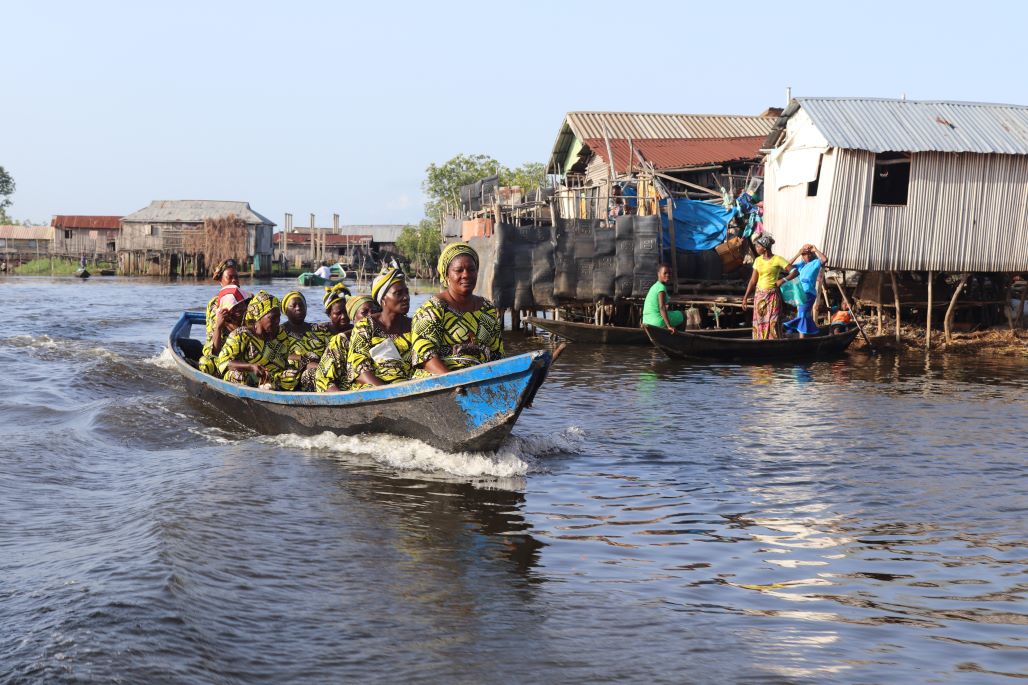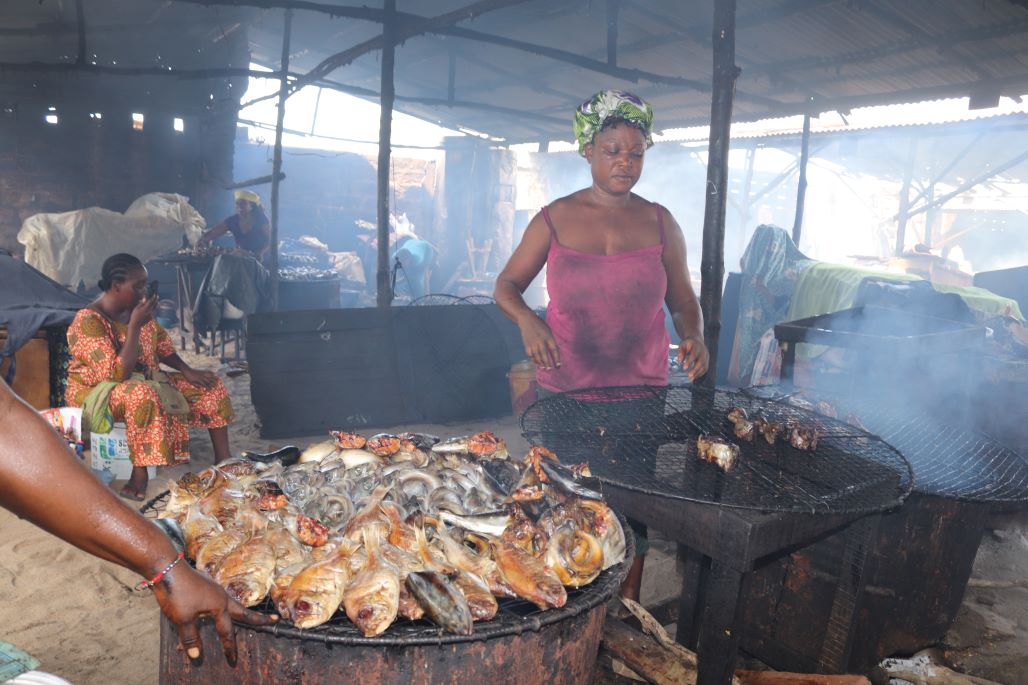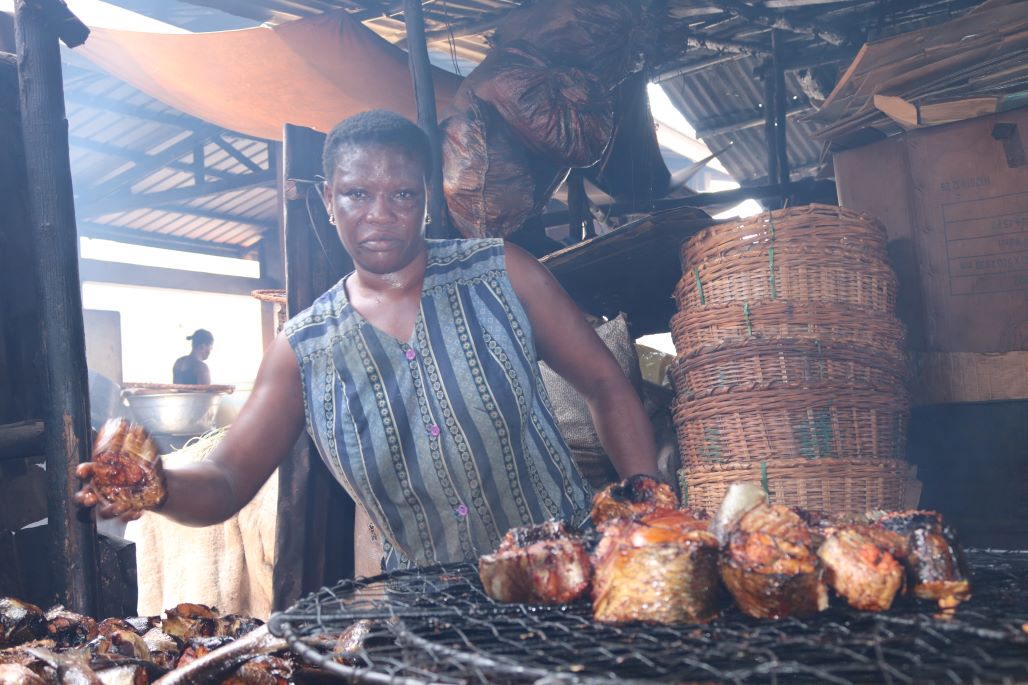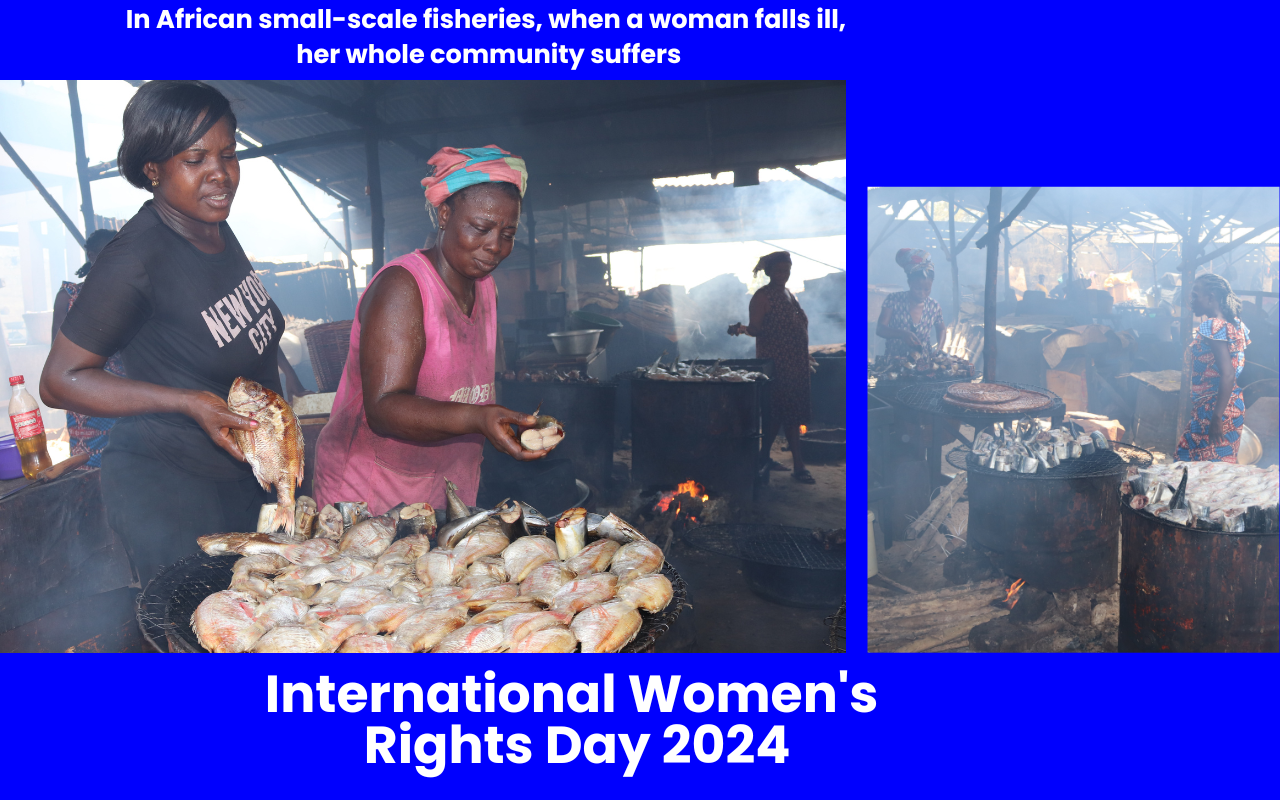The recent report on ‘Fisheries and the right to food in the context of climate change’ points out that women account for half of the workers in all fisheries and aquaculture value chains, where they perform crucial functions: ‘for every fisher, there are around four jobs in secondary activities, including marketing and fish processing, and many of these are held by women’.

In Africa, women are present at all stages of the fisheries value chain: from pre-financing fishing trips, to receiving fish from fishers, to processing and marketing products. As producers, processors, traders, and managers of natural resources from the ocean, they play a crucial role in sustainable food systems, and are the guarantors of the right to food for millions of African citizens.
CAOPA is concerned about the violation of women’s rights in the African artisanal fishing sector.

Women have a right to decent working conditions. Today, processing facilities pose dangers, exposing women to health risks. The smoke they inhale for extended periods in unsanitary environments, the heat from the ovens, all damage their eyes and lungs, not to mention the serious risk of burns. In small-scale fisheries in Africa, when a woman falls ill or is injured in the course of her work, her whole family, her whole community, suffers.
Women have the right to access the resources of the sea and the land on which they depend for their livelihoods. Today, women are finding it increasingly difficult to access fish, – because of overfishing and competition with other sectors, such as factories that turn fish into fishmeal. They also have to contend with development projects, often linked to the blue economy, undertaken without their free, prior and informed consent, for access to land in coastal areas where they carry out their activities.
 Adopted ten years ago by the FAO, the Voluntary Guidelines to Ensure the Sustainability of Small-Scale Fisheries in the Context of Food Security and Poverty Eradication (VG-SSF) explicitly bind our countries to ensure equal rights for men and women, and are the first fisheries instrument to directly address the issue of gender in fisheries. An increasing number of African countries – including Senegal, Uganda, Tanzania, and Zimbabwe – have now drawn up national action plans to implement the VG-SSF, including on gender.
Adopted ten years ago by the FAO, the Voluntary Guidelines to Ensure the Sustainability of Small-Scale Fisheries in the Context of Food Security and Poverty Eradication (VG-SSF) explicitly bind our countries to ensure equal rights for men and women, and are the first fisheries instrument to directly address the issue of gender in fisheries. An increasing number of African countries – including Senegal, Uganda, Tanzania, and Zimbabwe – have now drawn up national action plans to implement the VG-SSF, including on gender.
The African Union has extended this commitment to women’s rights in fisheries through several frameworks and initiatives, such as the Policy Framework and Strategy for Reform of Fisheries and Aquaculture in Africa, Agenda 2063 and the Decade for Rural Women.
We encourage all African states to continue along this path in order to promote the rights of women in the fishing sector, drawing particular inspiration from the Call to Action launched by artisanal fisheries, which calls for the protection of artisanal fisheries tenure and access rights to resources, for ensuring the active participation of women in decision-making processes, and supporting their role in innovation, in order to guarantee their rights to decent living and working conditions.


